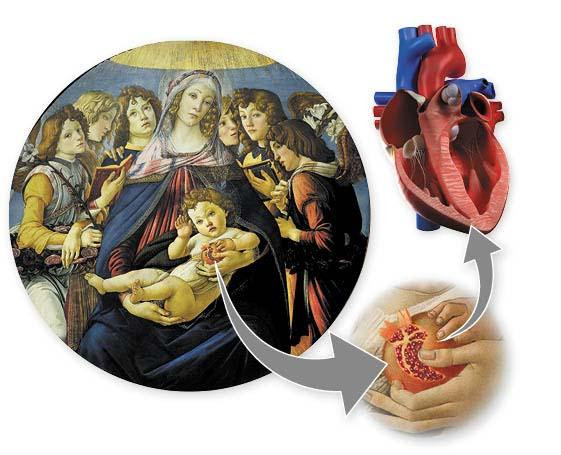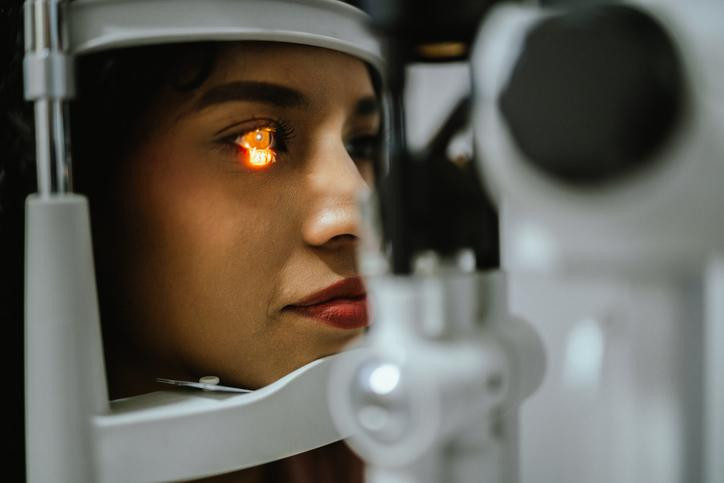
New thinking about plaque in arteries that feed the brain

Want to prevent shifting teeth? Maybe you need retainers

What you need to know about the new dietary guidelines

Food that’s healthier for people and planet can be cheaper, too

New evidence that polyphenol-rich foods help the heart

8 simple ways to reduce ultra-processed foods in your diet

How to curb your stress eating

How to spot Parkinson’s disease symptoms

Heart failure symptoms in women: How they’re different

GERD diet: Foods to avoid to reduce acid reflux
Heart Health Archive
Articles
Extra-virgin olive oil may be healthier than regular olive oil
A 2025 study found that a high intake of extra-virgin olive oil (EVOO) was linked to a lower risk of heart-related problems, while intake of common olive oil was not. Higher levels of beneficial polyphenols in EVOO may explain the difference.
The art of the heart
Visual art in paintings, medical illustrations, and modern digital tools has influenced how people understand the human heart. The bridging of art and the heart dates back to Leonardo da Vinci, whose drawings laid the groundwork for modern cardiology. Today, the intersection of art and the heart may also contribute to healing through advocacy (such as art in public health campaigns), education (such as interactive animations to help people understand the heart), and innovation (such as three-dimensional models to illustrate procedures).
Retina scan may provide clues to early heart disease
A scan called retinal optical coherence tomography angiography, which provides detailed, three-dimensional images of blood vessels in the retina, may help identify people who should be screened for atherosclerosis, according to a 2025 study.
Psychological distress common in heart attack survivors
Up to half of heart attack survivors experience some form of psychological distress after the event, including depression, anxiety, or stress, according to a 2025 statement from the American Heart Association.
Mind your heart for a longer, healthier life
Simple, proven strategies to live a longer, healthier life can help people become super-agers, defined as people who reach the age of 70 without any major diseases such as heart disease, cancer, or dementia. These habits include doing strength training to preserve muscle mass, eating a mostly vegetarian diet that provides many healthful nutrients, and prioritizing healthy sleep habits.
An Indian adaptation of the Mediterranean diet
An Indian-adapted Mediterranean diet includes vegetarian-focused meals flavored with an array of vibrant spices. The fiber-rich meals contain anti-inflammatory compounds that may provide heart-related health benefits. Healthy protein sources include legumes, featured in dishes such as chana masala (chickpeas in a tomato-based sauce) and dal (a soupy stew made from dried split lentils or peas). Tomatoes, eggplant, and peppers appear often in both the Mediterranean diet and the Indian-adapted version, as do leafy greens such as spinach.
The new blood pressure guidelines: What you need to know
The 2025 blood pressure guidelines recommend starting drugs to treat hypertension if people don’t meet blood pressure goals after three to six months of lifestyle changes. The guidelines also recommend that everyone with high blood pressure be screened for primary aldosteronism, and suggest that people with resistant hypertension (stubbornly high blood pressure) consider renal denervation, a procedure that disrupts some of the nerves around the arteries supplying blood to the kidneys.
Indoor air quality and heart health
A 2025 study found that using a high-efficiency particulate air (HEPA) filter to trap tiny particle pollutants may help lower blood pressure for people living near busy roads. Of particular concern are particles less than 2.5 microns in diameter, known as PM2.5, which creates inflammation that damages blood vessels and contributes to high blood pressure. Nearly a quarter of Americans live near vehicle-congested roads, and many more people are exposed to pollution from wildfire smoke.
Is an apoB test a better way to check your cholesterol?
An apolipoprotein B (apoB) test counts the number of LDL particles in the bloodstream as well as other particles that can contribute to clogged arteries and heart attacks. All of these so-called atherogenic particles carry a single apoB molecule but varying amounts of cholesterol. ApoB values are more closely linked to heart disease risk than LDL cholesterol. People with signs of an unhealthy metabolism—such as prediabetes, a big belly, or elevated triglycerides—are far more likely to have a high apoB.

New thinking about plaque in arteries that feed the brain

Want to prevent shifting teeth? Maybe you need retainers

What you need to know about the new dietary guidelines

Food that’s healthier for people and planet can be cheaper, too

New evidence that polyphenol-rich foods help the heart

8 simple ways to reduce ultra-processed foods in your diet

How to curb your stress eating

How to spot Parkinson’s disease symptoms

Heart failure symptoms in women: How they’re different

GERD diet: Foods to avoid to reduce acid reflux
Free Healthbeat Signup
Get the latest in health news delivered to your inbox!
Sign Up











